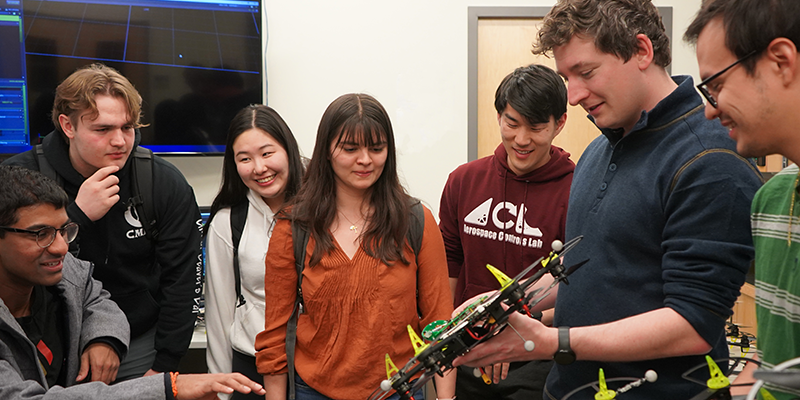The engineering profession is constantly evolving as new technologies are developed and new challenges arise. Aurora Flight Sciences, a Boeing Company, is helping students at the Massachusetts Institute of Technology (MIT) gain valuable insights into the world of engineering and develop skills that will help them succeed in their future careers.
Employees at our Cambridge, Massachusetts office are working with MIT’s New Engineering Education Transformation (NEET) program, a cross-departmental academic program with a focus on collaborative, project-centric learning. The program takes classroom learning one step further, providing students with hands-on experience by working on industry-relevant projects.
“We created the NEET program to better prepare our engineering graduates to take interdisciplinary approaches to challenges in areas that will help improve the world. This includes sustainability, autonomy, healthcare, climate change, and urban planning,” said Dr. Amitava ‘Babi’ Mitra, founding executive director of the NEET program. “NEET takes the students out of the classroom and puts them in a setting where they can collaborate with each other on real programs and learn essential skills in research, communication, and public speaking.”
Dr. Jessica Edmonds, head of Applied Research at Aurora, spearheaded the company’s effort to get involved with the program. “Aurora was founded by an MIT graduate, and we have enjoyed a close collaboration with the university for many years,” said Edmonds. “The NEET program is a great way to be involved with MIT. I’m excited to have this opportunity to work with the NEET students and give them the chance to work on a real-world aerospace application.”
Aurora employees currently work with students enrolled in a design class in the program’s Autonomous Machines thread, for which the MIT Department of Aeronautics and Astronautics is the home department. As a part of this class, students work to develop an autonomous system to satisfy a stated objective and performance goal. Examples of projects include environmental monitoring, space exploration, and assisted robotics.
“Industry particularly values NEET graduates as they spend their sophomore through senior years working collaboratively with students from different majors,” said Mitra. “Students in the NEET Autonomous Machines thread, for example, typically major in aeronautics and astronautics, electrical engineering and computer science, and mechanical engineering. They immerse themselves in a community that’s passionate about exploring, learning, and applying autonomy and robotics.”
This year, the students are designing a project centered around autonomous sensor placement and retrieval using unmanned drones. The drones use topographical maps and environmental cues to deploy and retrieve sensors for environmental monitoring applications. The team is prototyping the sensor enclosures and drone planning algorithms, developing a system which will allow environmental groups to keep tabs on large inaccessible areas with simple low-cost equipment.
Dr. Luke Burks is an AI/ML research engineer at Aurora and serves as a mentor for the MIT NEET program. “Being a part of the NEET program has been a real growth experience for me. I love having the opportunity to help prepare these students for their transition out of academia and into industry,” said Burks. “It’s a bit humbling, and hopefully I can teach them a few things I wish I’d known before graduating.”
As a part of the program, Aurora employees participate in weekly design classes, facilitating group discussions and giving demonstrations and guest lectures. This year, Aurora-led lessons have focused on developing requirements, selecting projects, setting up sub-team structures, and even learning project management skills.
“My favorite part of giving a lecture is hearing the questions I get at the end of it,” said Burks. “Once the students start asking questions, you can see them engaging with the problem and trying to understand it for themselves. Sometimes they’ll ask questions I haven’t thought about or don’t have the answer to. These are the best type of questions because I get to learn something, too.”
Aurora’s collaboration with the NEET program began in 2020, providing unique experiences for students and employees alike.
“We’ve been fortunate to work with a terrific team of engineers who are excited and passionate about what they do, and who enjoy igniting that passion in undergraduates,” said Mitra. “The Aurora team helps with project design, development, guidance, and mentorship. In turn, the students learn about the culture and programs at Aurora, which can help them determine if this is a career path they want to pursue. It’s truly a win-win scenario.”
Interested in learning more about opportunities at Aurora? Visit our careers site at careera.aurora.aero.
ABOUT AURORA FLIGHT SCIENCES
Aurora Flight Sciences, a Boeing Company, advances the future of flight by developing and applying innovations across aircraft configurations, autonomous systems, propulsion technologies, and manufacturing processes. With a passionate and agile team, Aurora delivers solutions to its customers’ toughest challenges while meeting high standards of safety and quality. Learn more at www.aurora.aero
# # #
Contact:
Carmen Smith, Aurora Flight Sciences
smith.carmen@aurora.aero


